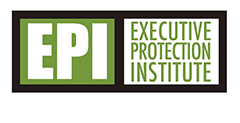The world of executive protection (EP) is undergoing evolution. Today’s protectors face a dynamic threat landscape, more complex client profiles, and ever-increasing expectations from both corporations and high-net-worth individuals. To succeed as a Personal Protection Specialist (PPS), professionals must combine intelligence, adaptability, discretion, and ongoing training.
Executive Protection in The Digital Age
Executive protection has evolved significantly from its beginnings as basic bodyguard services to today’s comprehensive risk management profession. This reflects changes in threat environments, technology, and the expectations of high-profile clients.
Modern executive protection professionals have evolved beyond just physical deterrence; they are now expected to grasp corporate culture, cyber threats, and geopolitical risks.

In the past, executive protection mainly centered around physical defense in close quarters. However, events like the 9/11 attacks, the rise of targeted violence, and growing digital vulnerabilities have expanded the scope of what protection teams must address. As a result, this growth has significantly raised the bar for professionals entering or advancing in this field. Today, those working in executive protection must exhibit advanced communication skills, have a thorough understanding of legal and ethical considerations, and be able to coordinate
effectively with various law enforcement agencies.
As the industry continues its professionalization process, the demand for
specialists who integrate traditional security expertise with contemporary skills
is increasing. Therefore, adapting to these changes is no longer just a
competitive advantage for professionals in the field; it has become a necessary
requirement to stay in the industry.
Core Competencies in Executive Protection
The expectations for EP professionals now extend far beyond traditional
protocols. Success in this field requires mastery of diverse skills that blend tactical execution, strategic planning, and emotional intelligence. Key competencies include:
1.Situational Awareness
It is a critical skill in EP, requiring agents to remain constantly alert to their surroundings to identify potential threats proactively. Recognizing deviations from the environmental baseline and detecting pre-incident indicators allows experienced agents to make timely adjustments during advance work or field operations.
As executive protection is inherently proactive, the ability to anticipate and mitigate risks is essential to ensuring mission success.
2.Advanced Interpersonal Skills
The best protection feels invisible. That’s only possible when the protector possesses a refined social radar. Interpersonal calibration means knowing when to step in and when to step back, when presence should be felt, and when it must be forgotten. These are the soft skills that forge trust, often in seconds, and sustain it for years.
3.Physical Readiness and Defensive Tactics
In Executive Protection, true physical readiness goes beyond just appearance.
While a fit presence can act as a deterrent, it doesn’t mean you’re capable of performing effective defensive actions. Agents need to develop a broad set of physical skills, including conditioning, martial arts, and firearms training. Importantly, these skills can fade over time and require consistent, disciplined practice to maintain true operational readiness
4.Risk Assessment and Management
Effective executive protection requires agents to identify and evaluate potential risks across all aspects of a client’s movement and environment—whether in transit, during travel, or at specific locations. Beyond assessment, agents must also implement appropriate mitigation strategies to reduce exposure to those threats. As risks are dynamic and context-dependent, this competency demands a proactive mindset and continuous situational evaluation.
5.Risk Assessment and Management
Global clients demand global thinking. Knowing etiquette, symbolism, and nuance across cultures isn’t a soft skill; it’s a survival tool. Misinterpreting a gesture or failing to respect local etiquette can escalate risks; conversely, cultural fluency can defuse tensions and foster smoother operations.
6. Operational Elasticity
In Executive Protection, rigid plans can quickly become obsolete. Adaptive capability, the ability to adapt in real time to factors like political instability, sudden itinerary changes, or shifting conditions—is essential to maintaining mission success. The true strength of a modern EP specialist lies in their capacity to navigate complexity and respond fluidly to the unpredictable nature of today’s global environment.
7. Technology Proficiency
The digital realm has become a critical battleground. From cyberattacks to surveillance threats, protectors must integrate technological proficiency into their daily operations, staying ahead of adversaries exploiting digital vulnerabilities.
In today’s environment, an effective protector must not only be physically and tactically prepared but also capable of managing reputational risks, ensuring secure international movements, and navigating crises with discretion and diplomacy. Emotional intelligence, once considered a “soft skill,” is now recognized as a defining trait of elite professionals in the field.
Building a Solid Foundation
Given the complexities of modern executive zrotection, foundational training is no longer a formality—it’s a necessity. Establishing a solid base of knowledge and skills allows professionals to operate confidently in diverse environments and respond effectively to evolving threats.
For those looking to enter the field or refine their capabilities, programs like the Fundamentals of Executive Protection offered by the Executive Protection Institute (EPI) are designed to address the real-world demands of today’s industry. Rather than offering a one-size-fits-all approach, EPI focuses on equipping students with practical, scenario-based training that mirrors the challenges faced by protection professionals daily.

Courses that emphasize core areas such as risk assessment, advance planning, situational awareness, and professional conduct are essential for developing a well-rounded protector. Furthermore, learning from instructors with extensive operational experience ensures that the training is grounded in practical application, not just theory.
In a profession where success hinges on preparation, adaptability, and professionalism, investing in foundational training is the first step toward a long-term career in executive protection.
To learn more about the upcoming Fundamentals of Executive Protection
Courses, please click here to check our calendar and to find the nearest
location.


